Coronavirus pandemic's global impact seen from space in chilling satellite images
"Social distancing" makes planet Earth look like a ghost town.
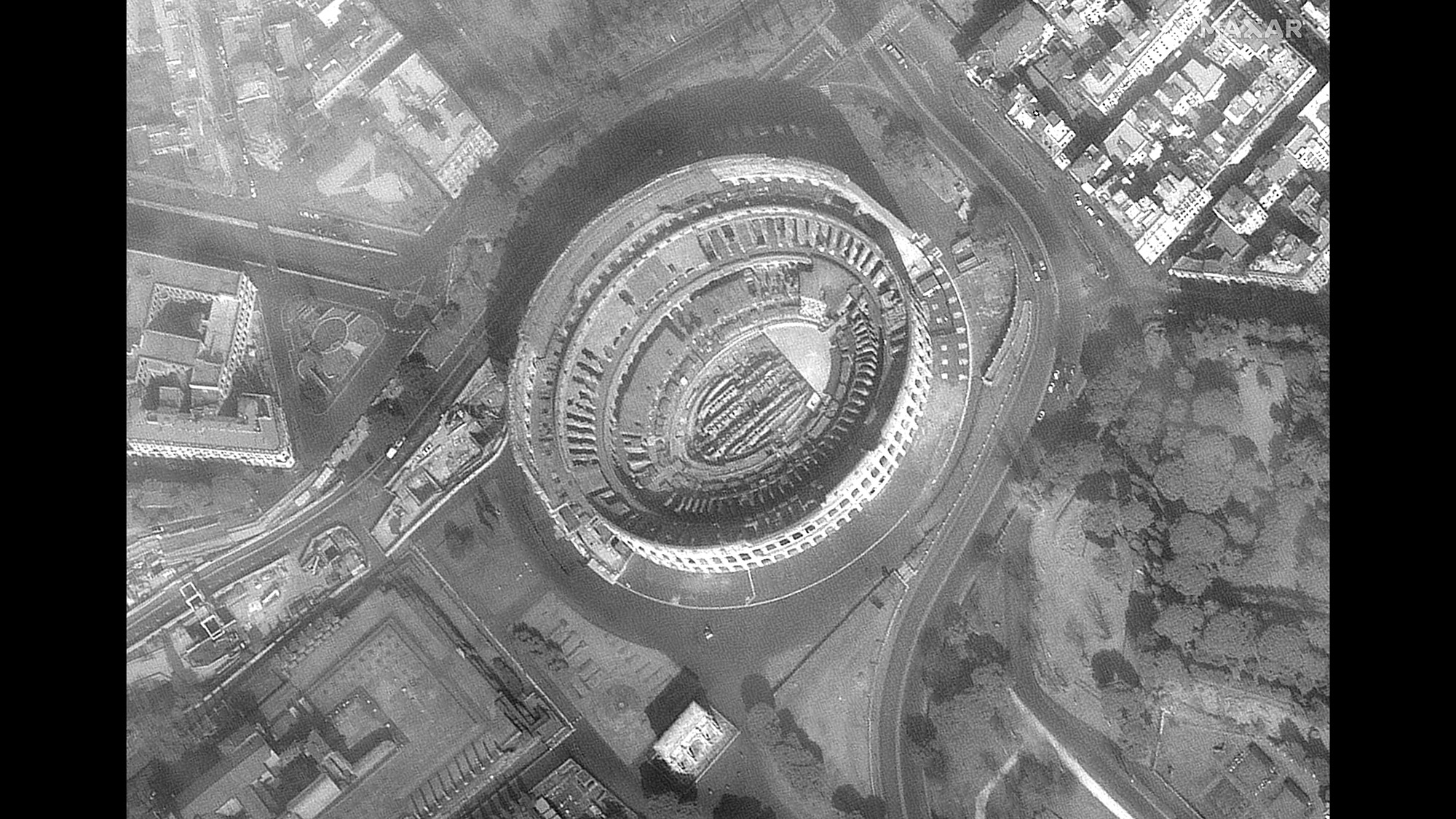
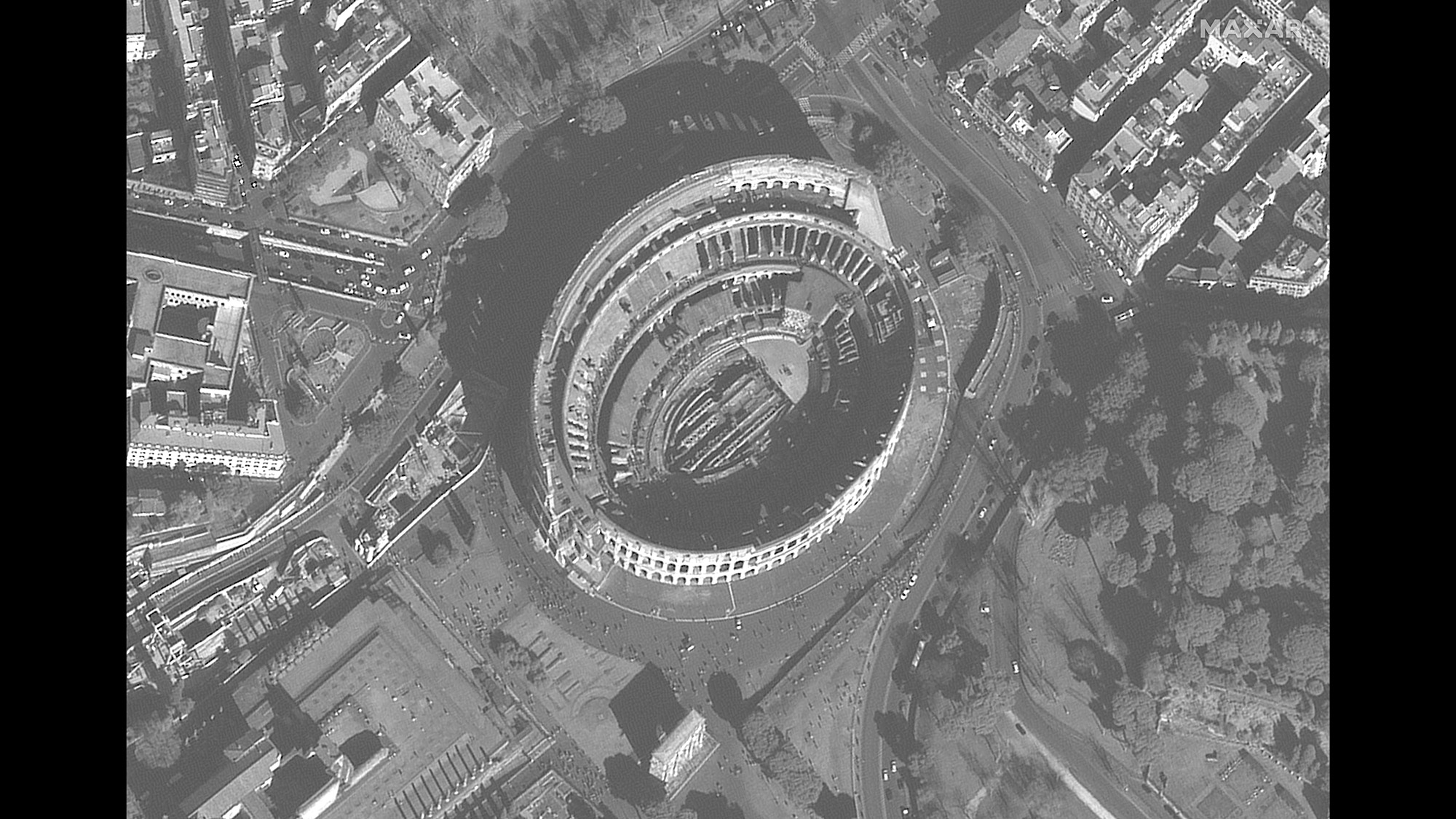
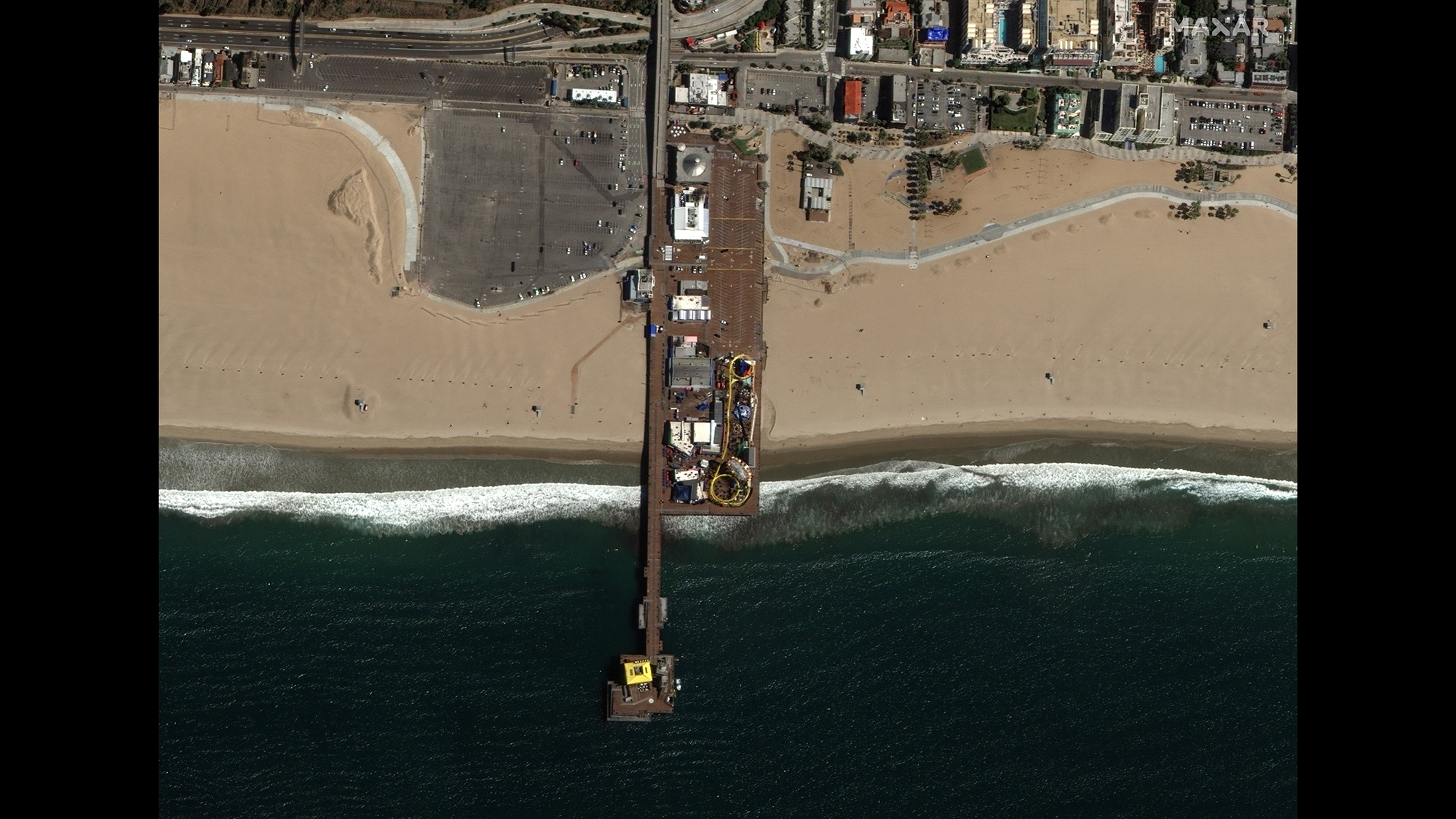
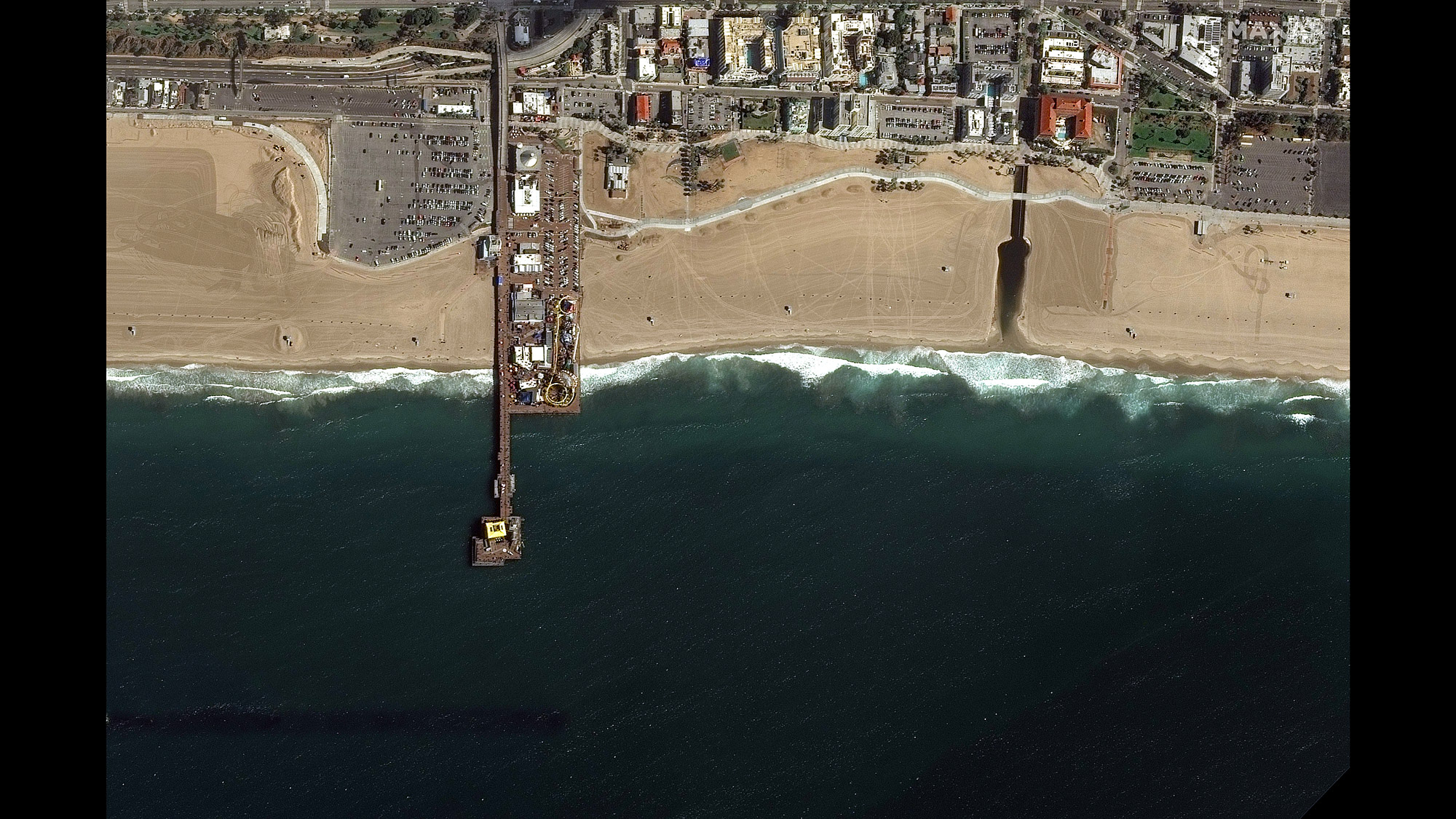
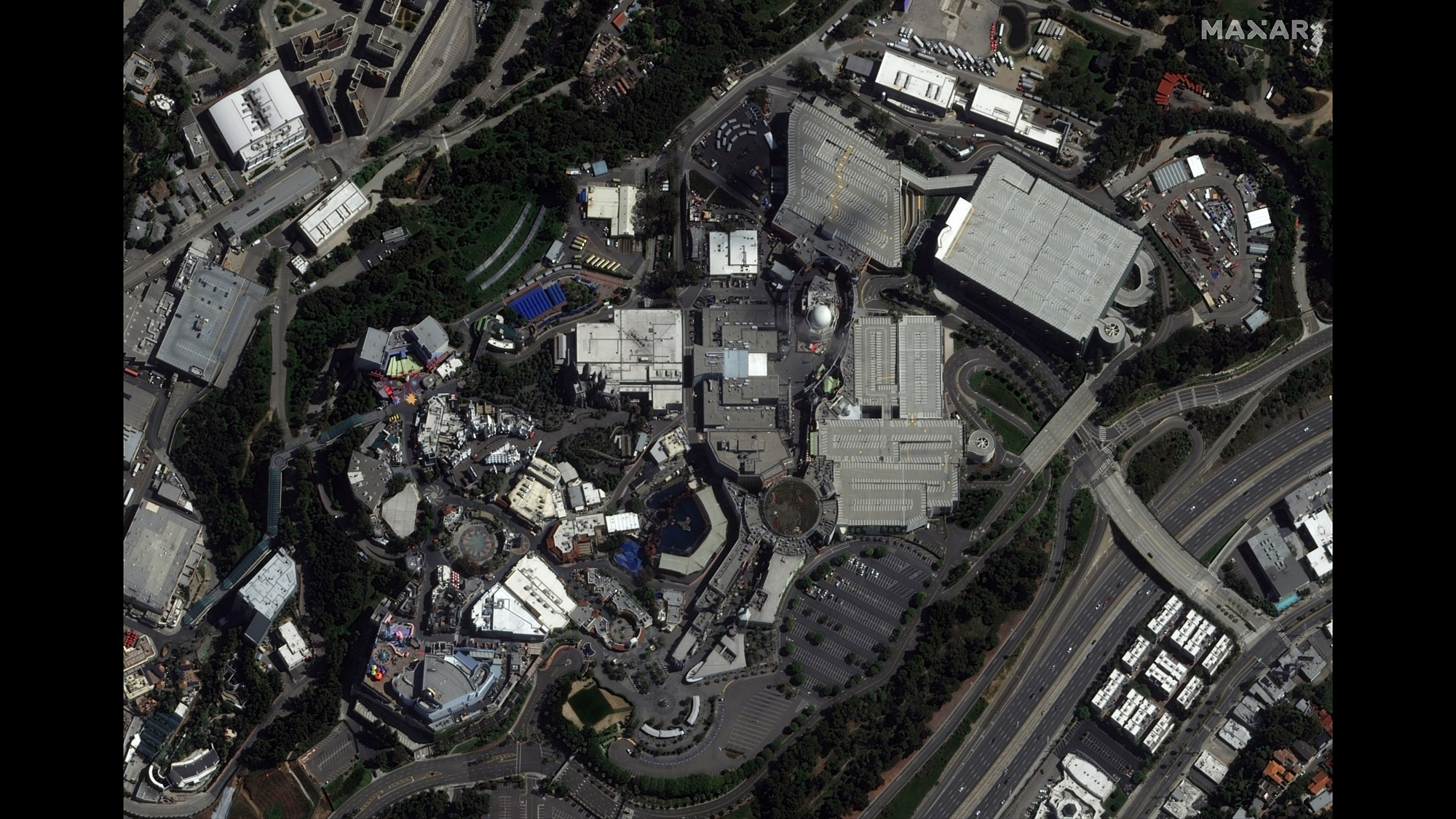
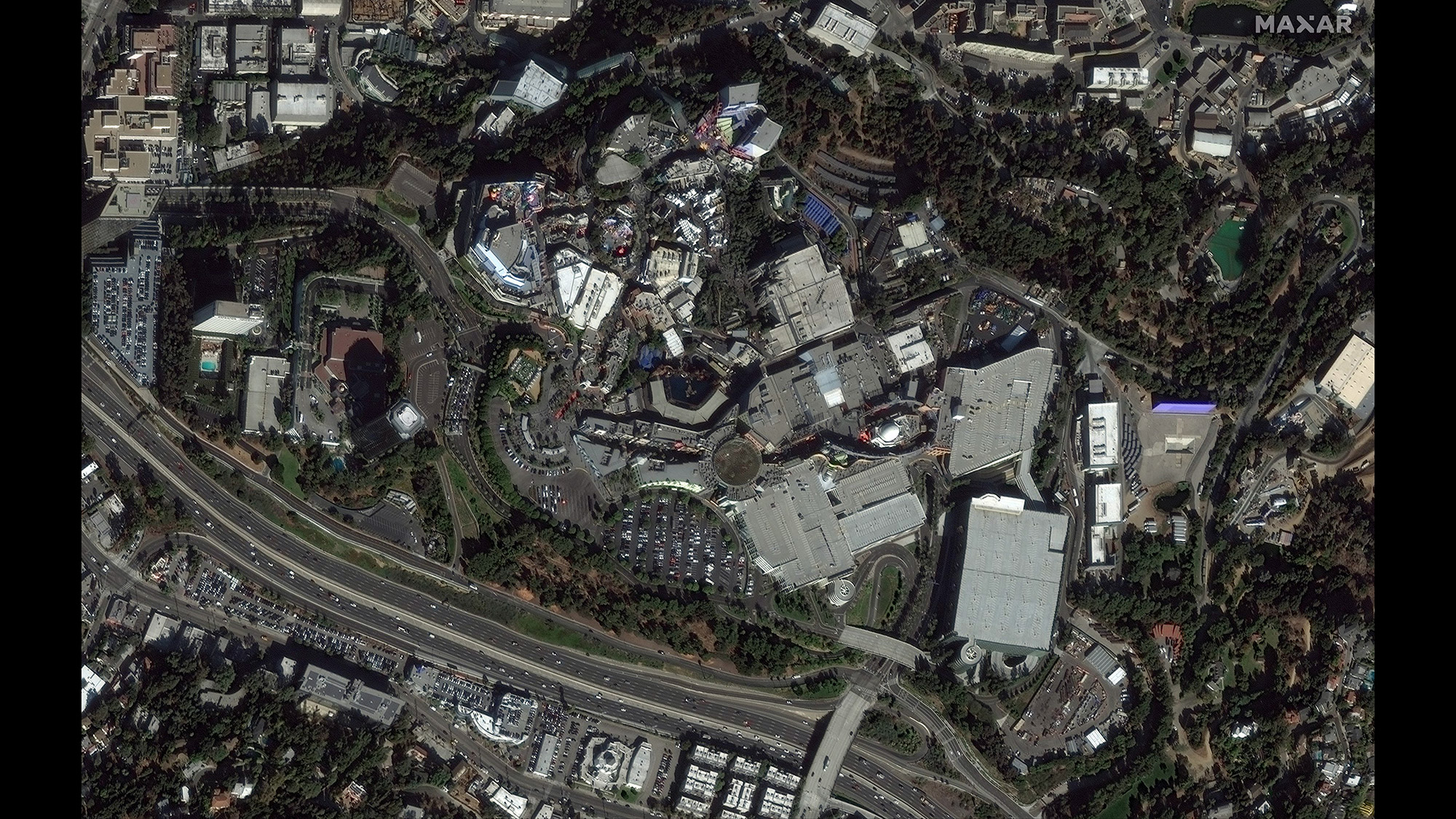
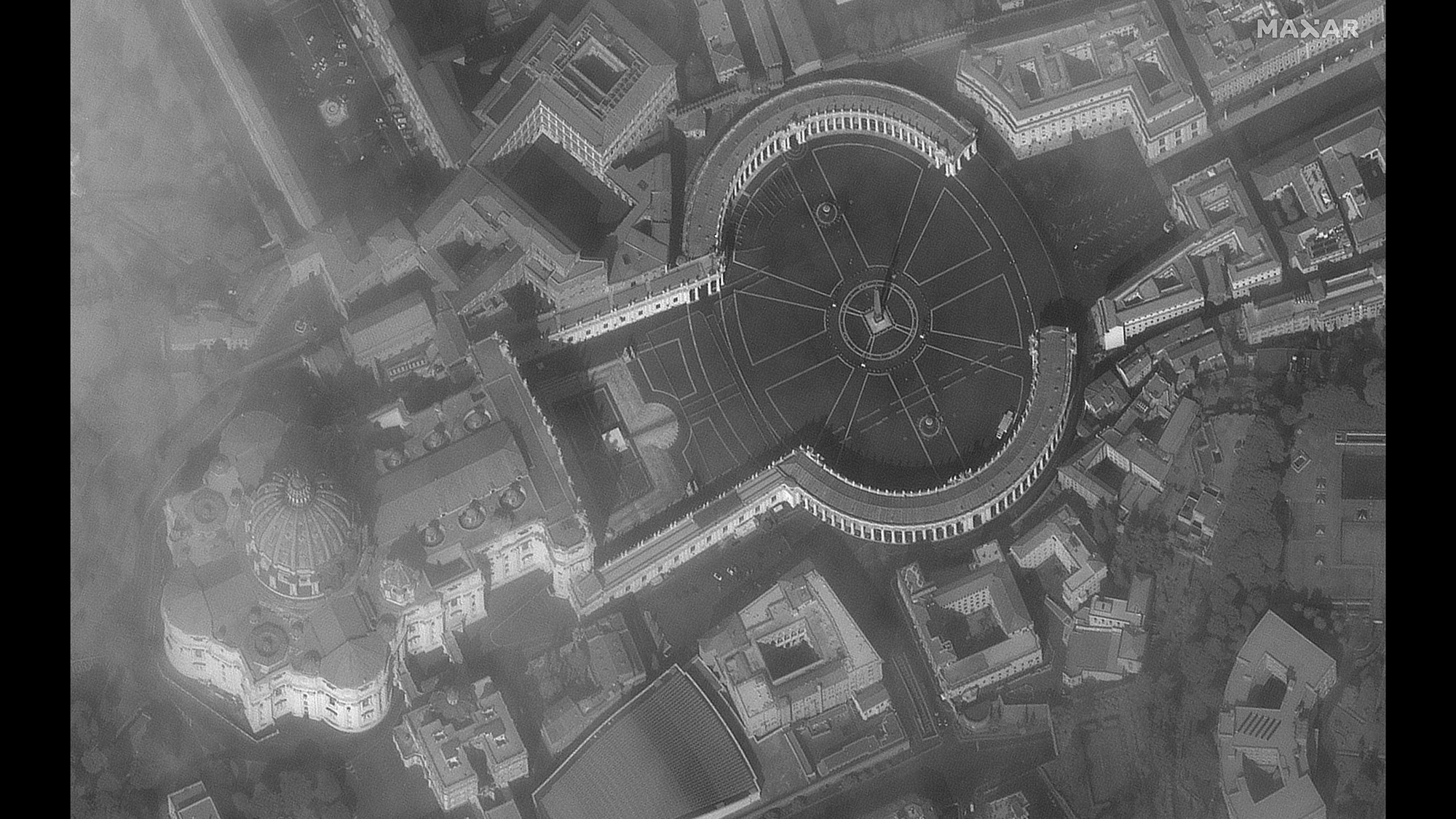
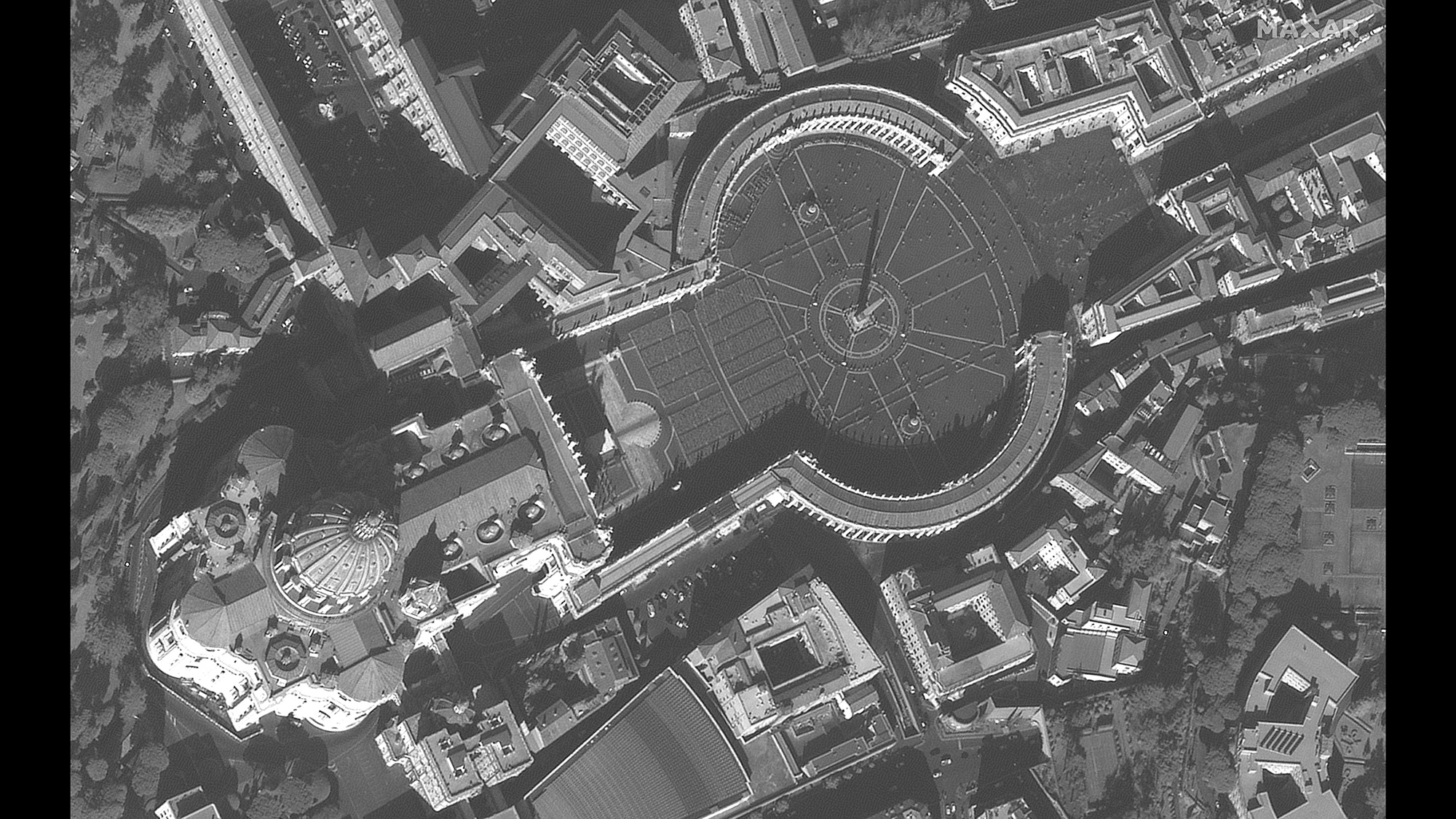
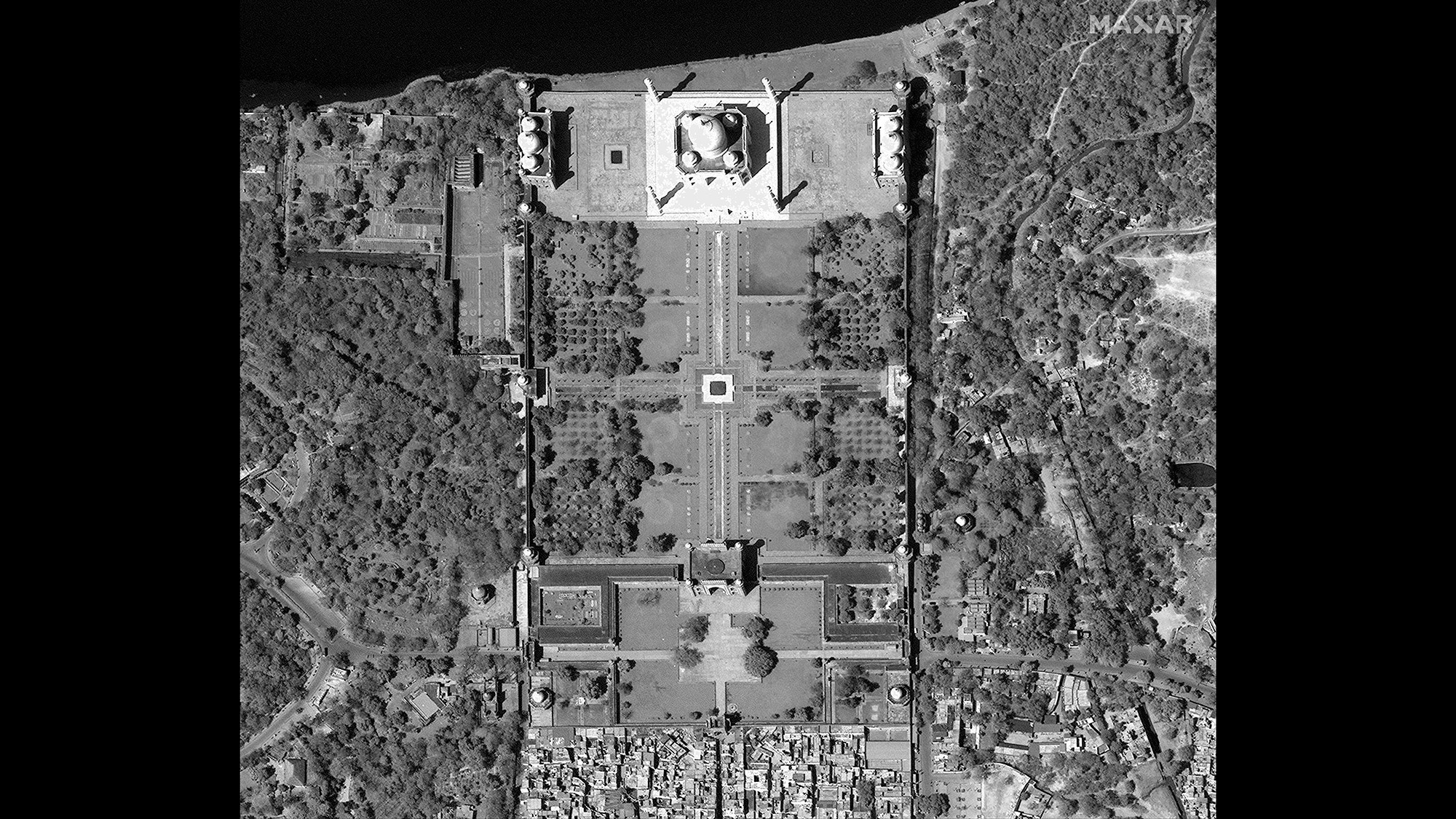
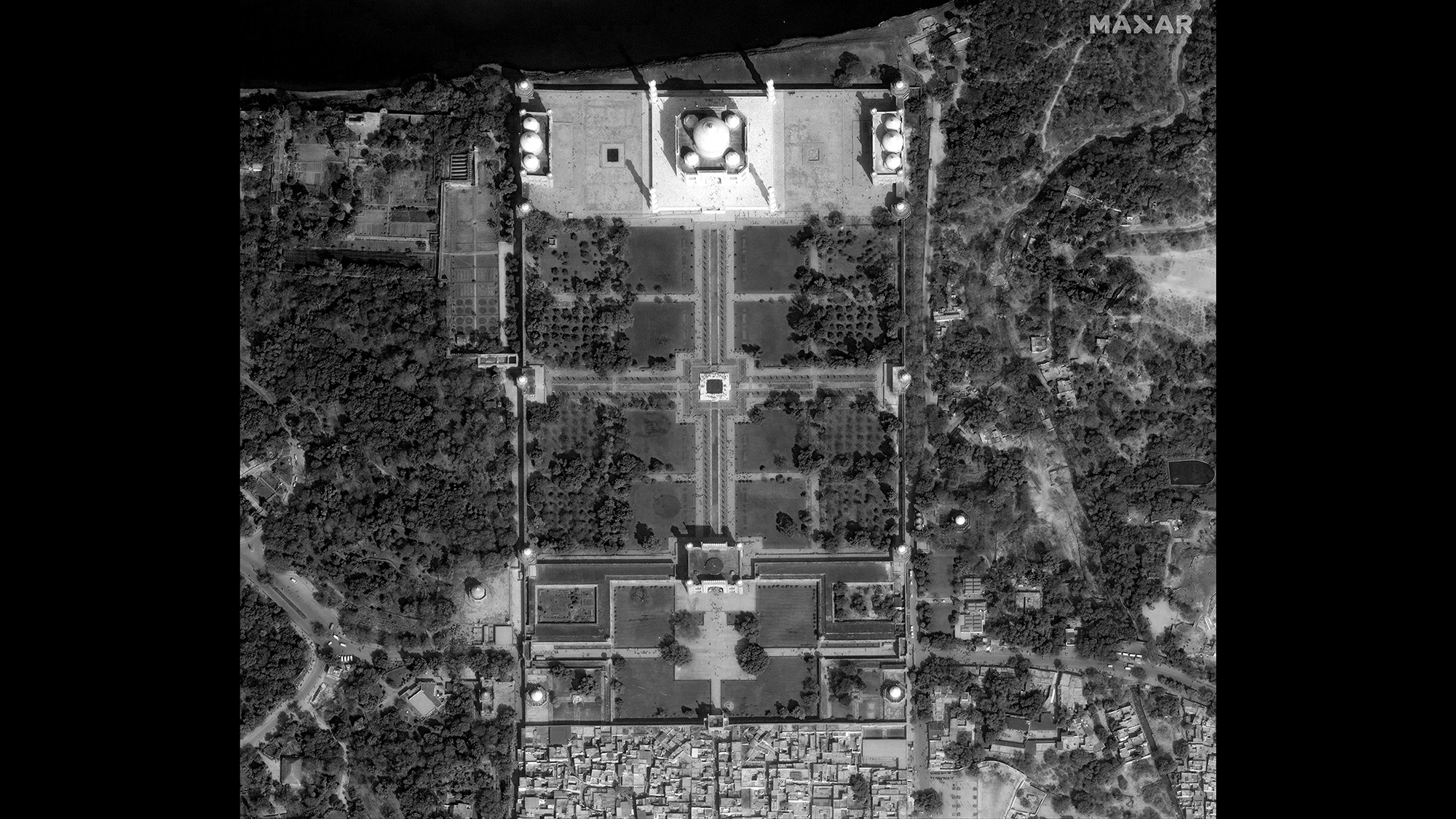
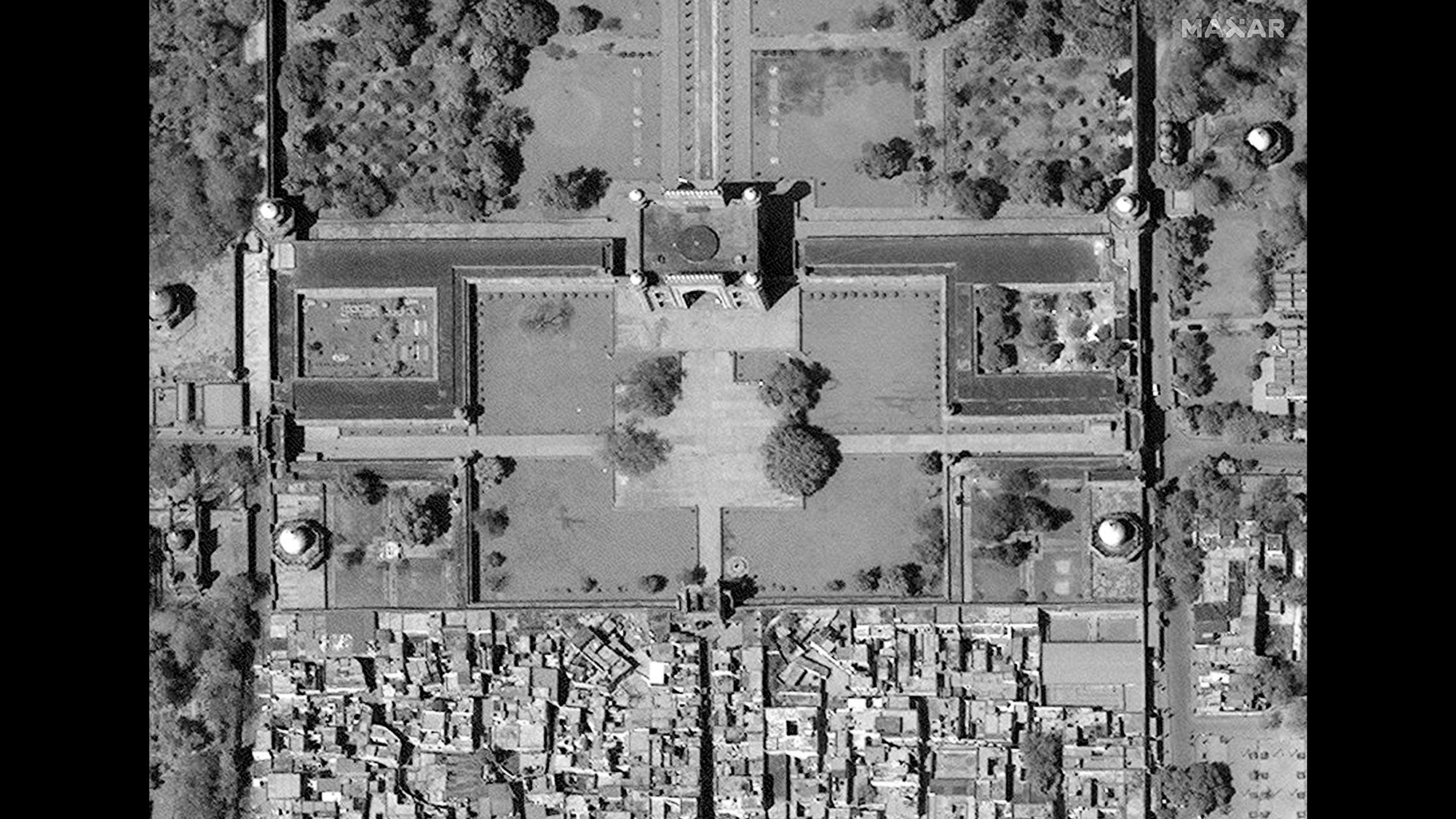
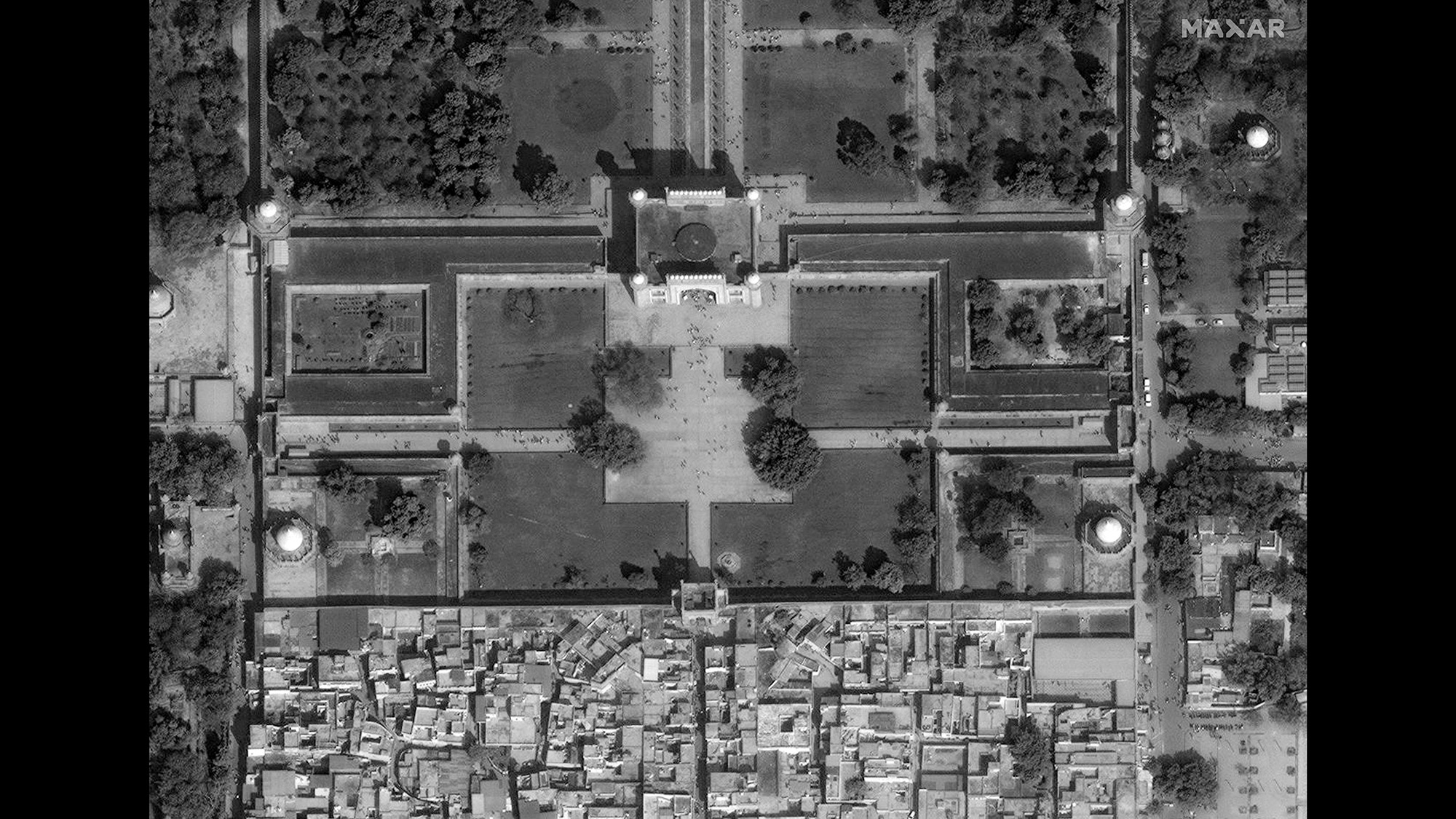
The global response to the novel coronavirus pandemic is so intense that it's visible from space.
As people around the world are staying at home and practicing "social distancing," satellites have captured incredible views of what used to be some of the most crowded places on Earth, which have now become desolate in the face of the coronavirus.
From deserted airports and tourist destinations to empty highways and abandoned shopping malls, these images from Maxar's WorldView satellites offer an eerie glimpse of the large-scale effects of the global pandemic, which has turned even the most densely populated cities into ghost towns.
Related: Satellite track emissions drop over China, Italy from coronavirus
Updates: The coronavirus pandemic impacts on space exploration
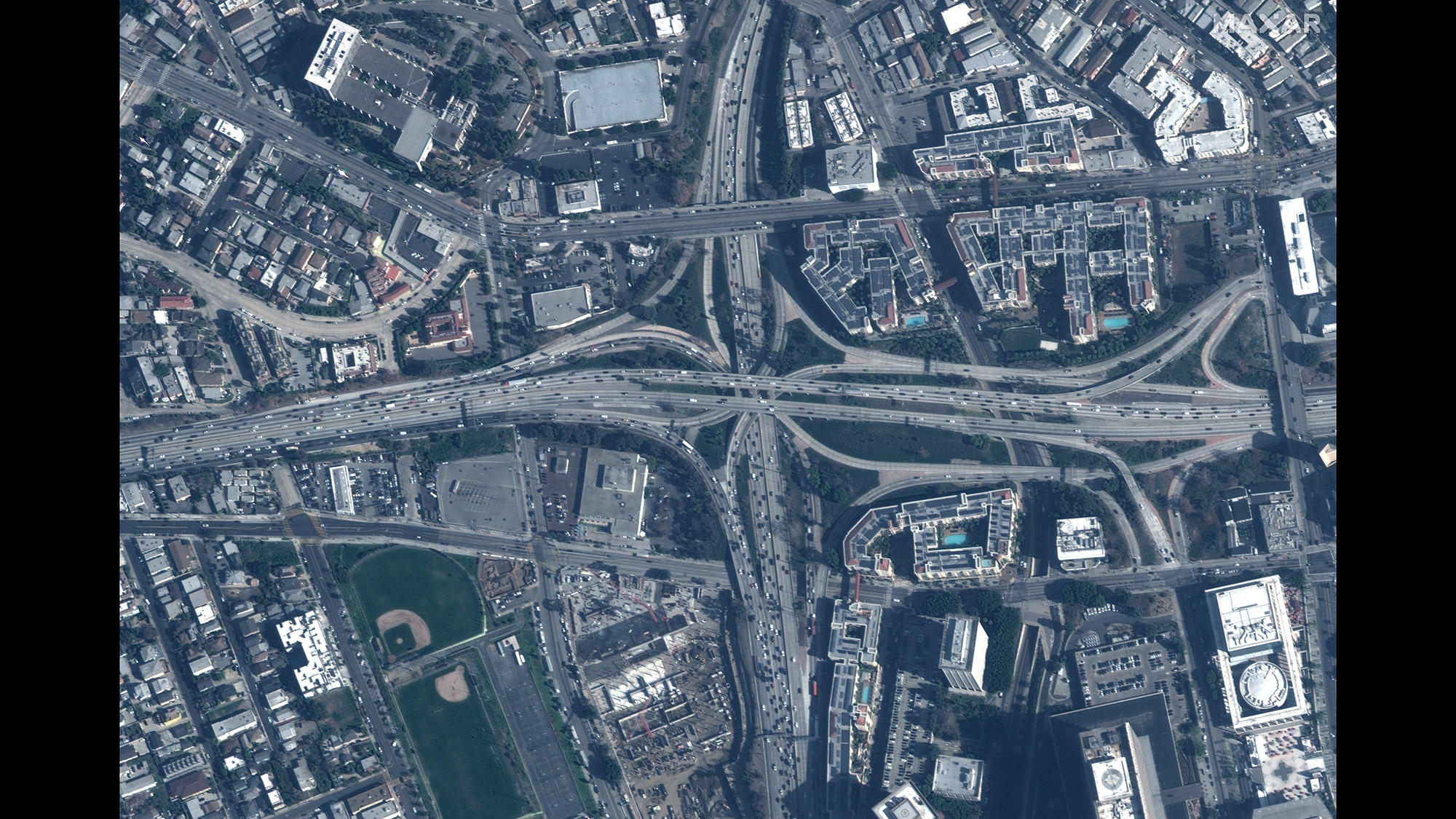
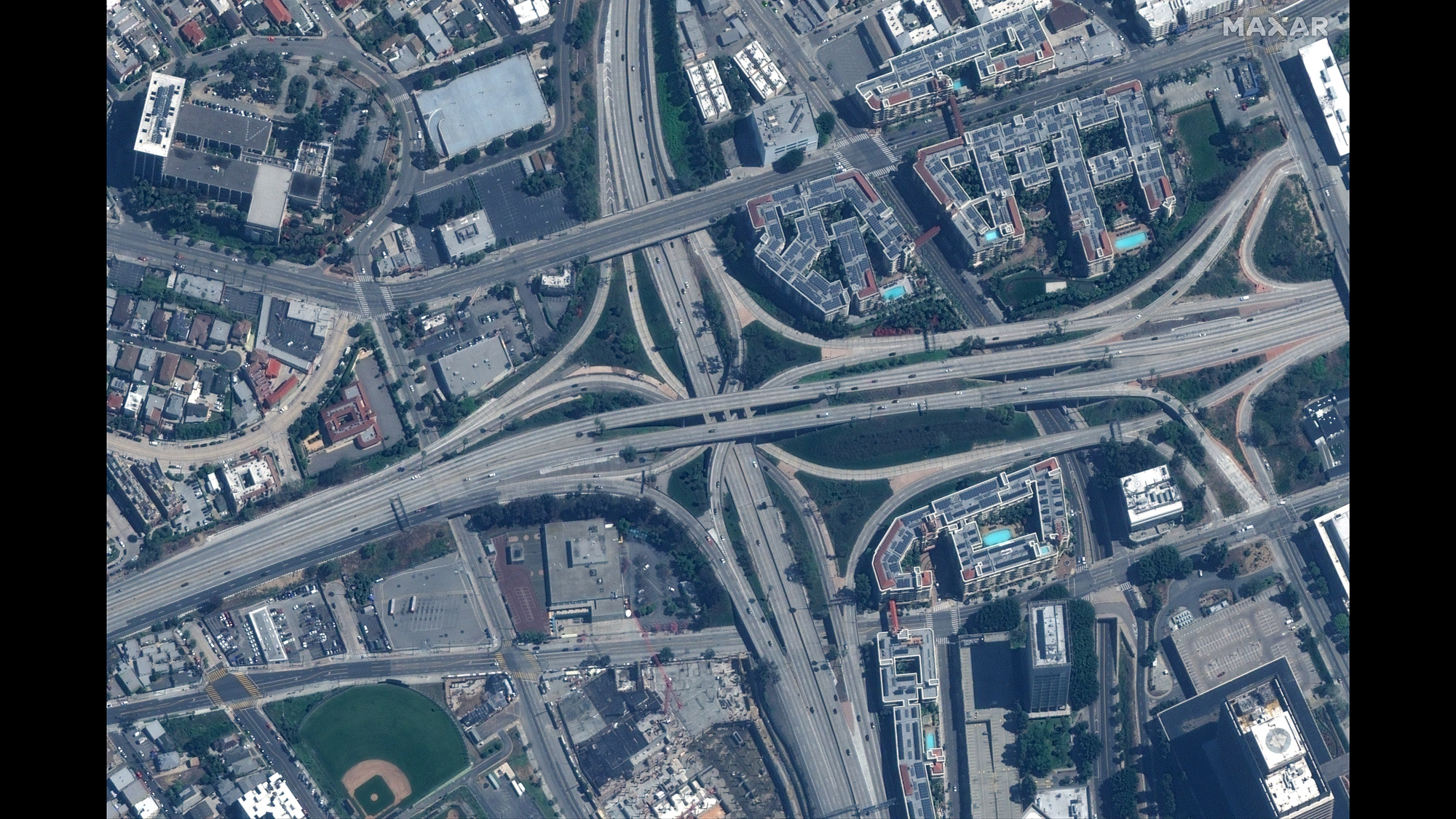
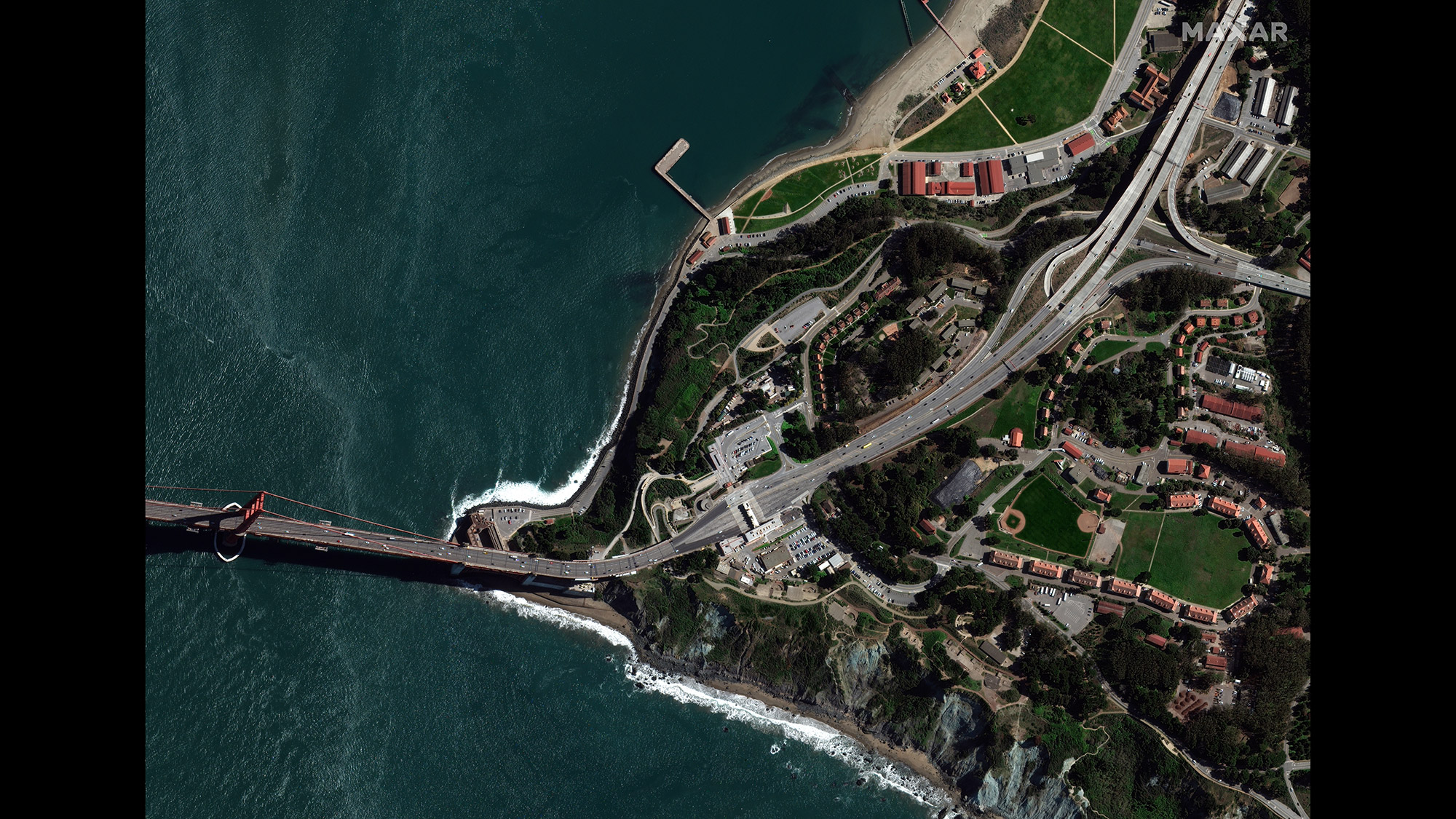
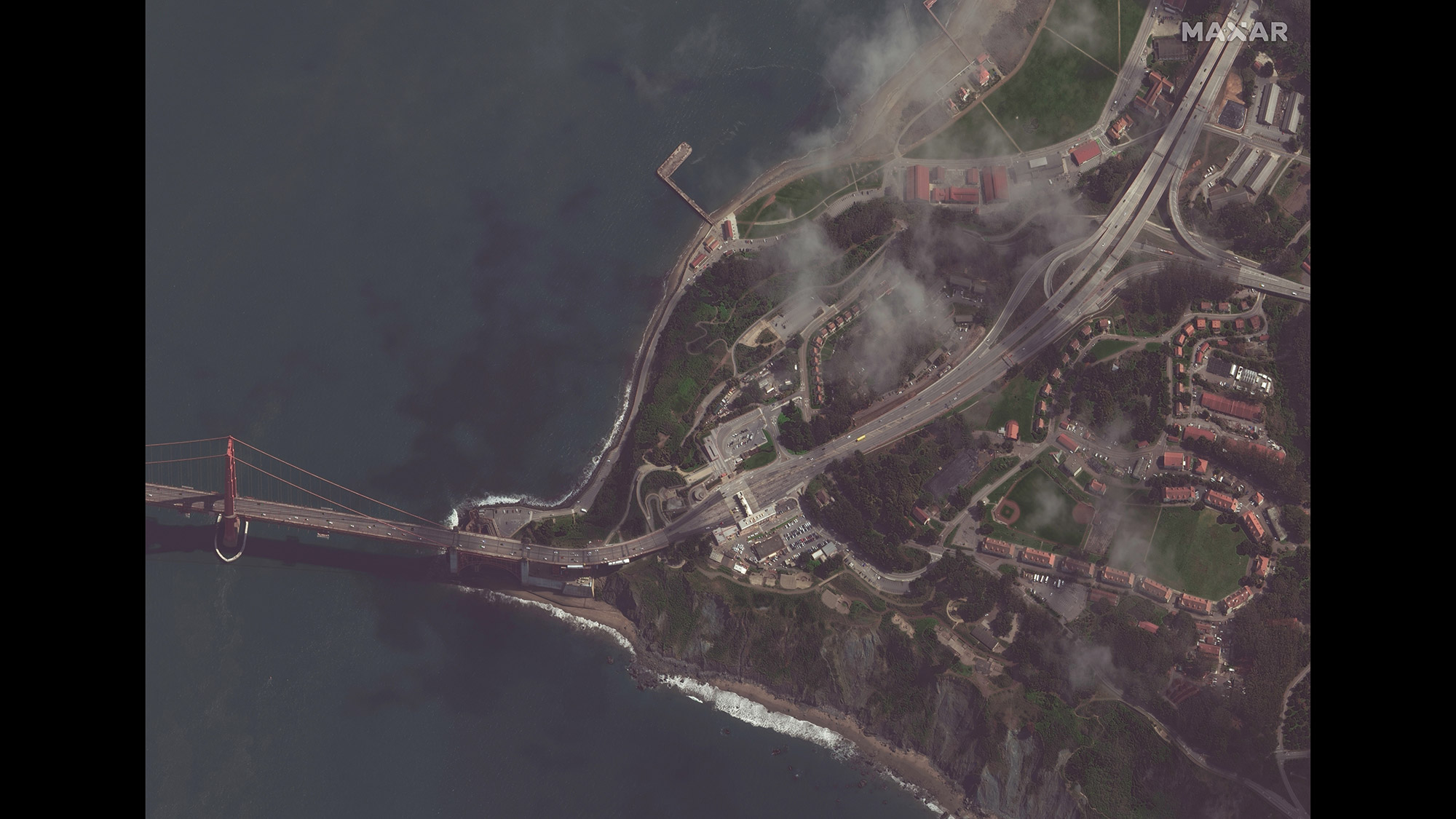
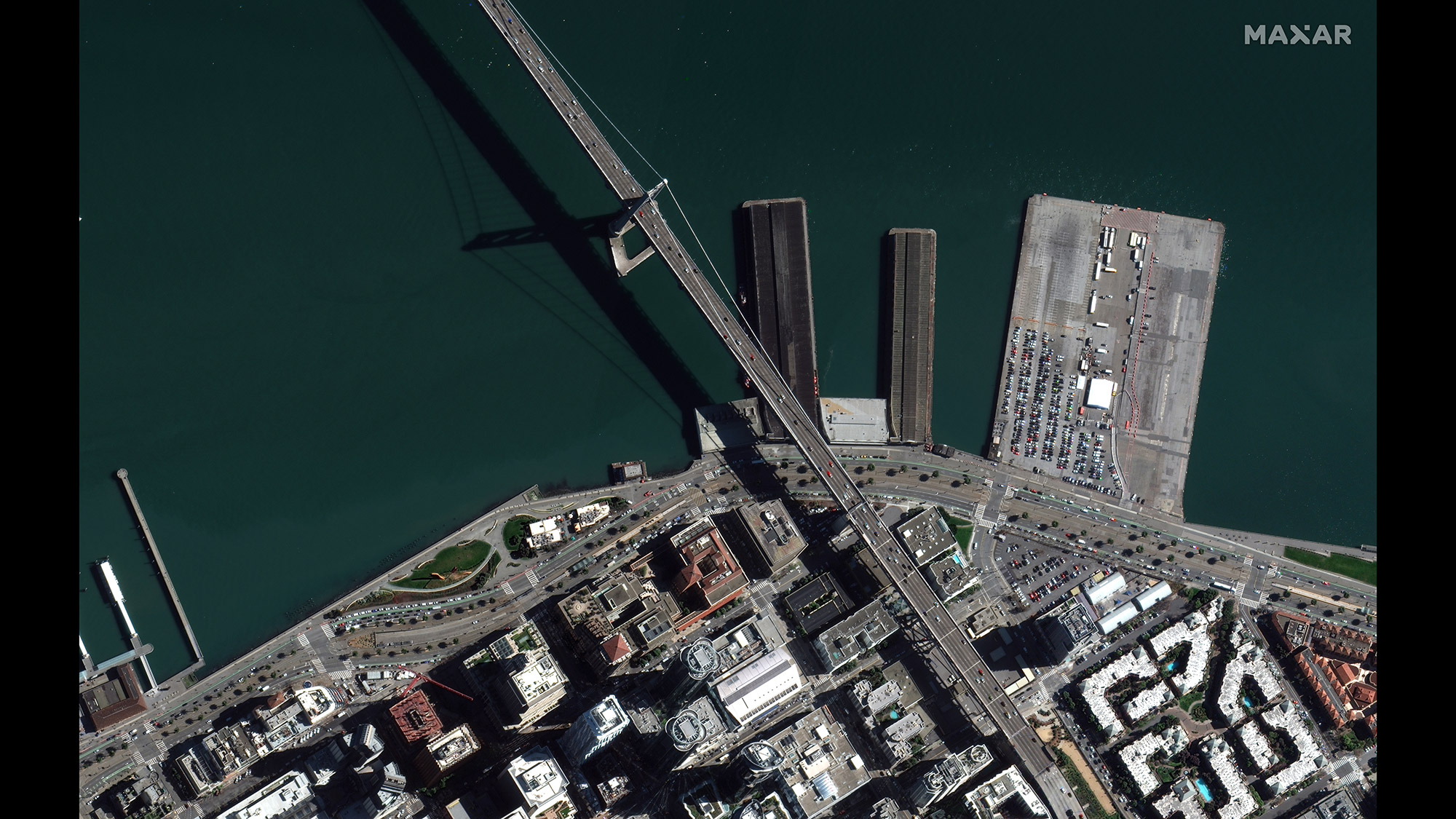
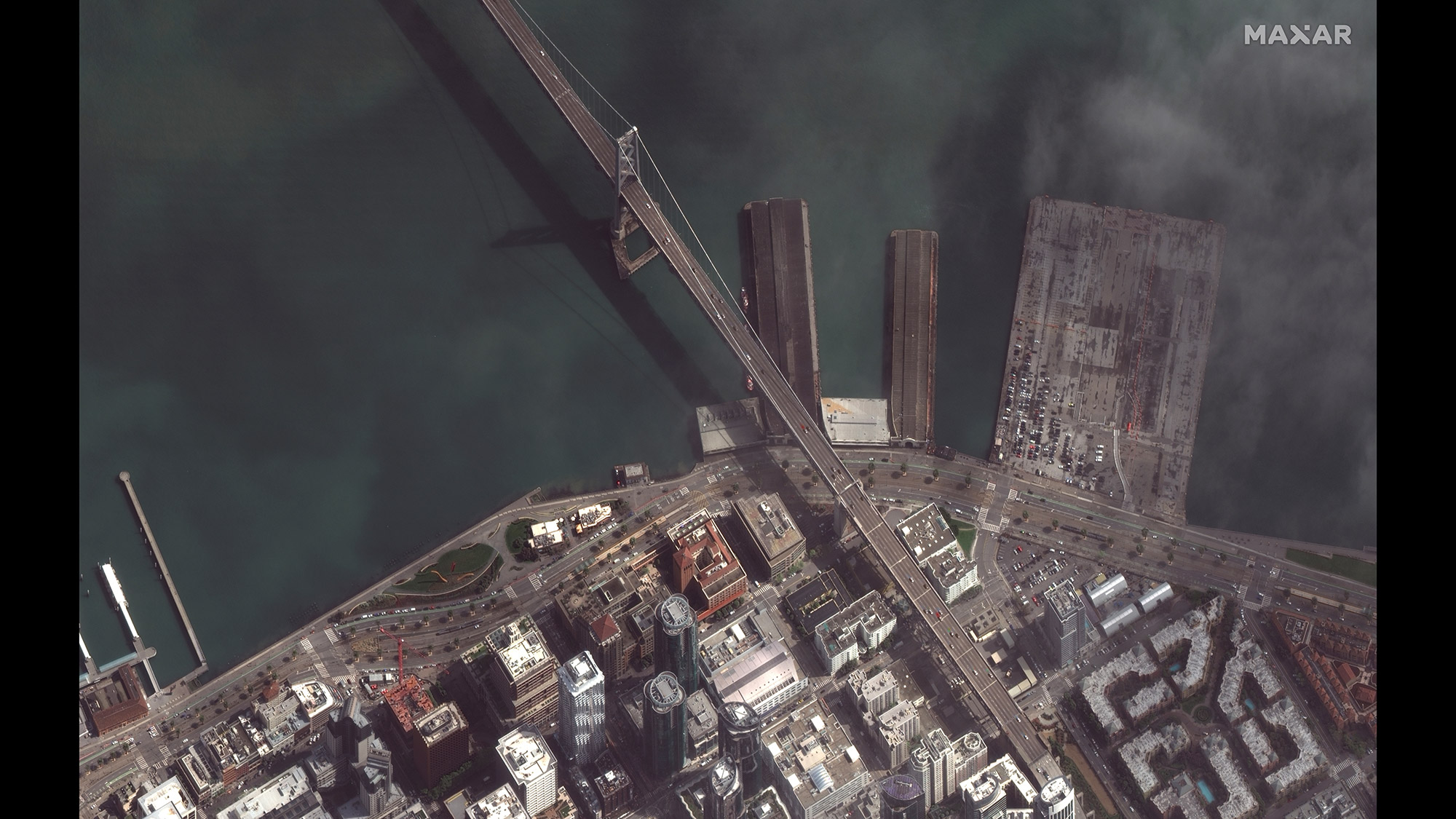
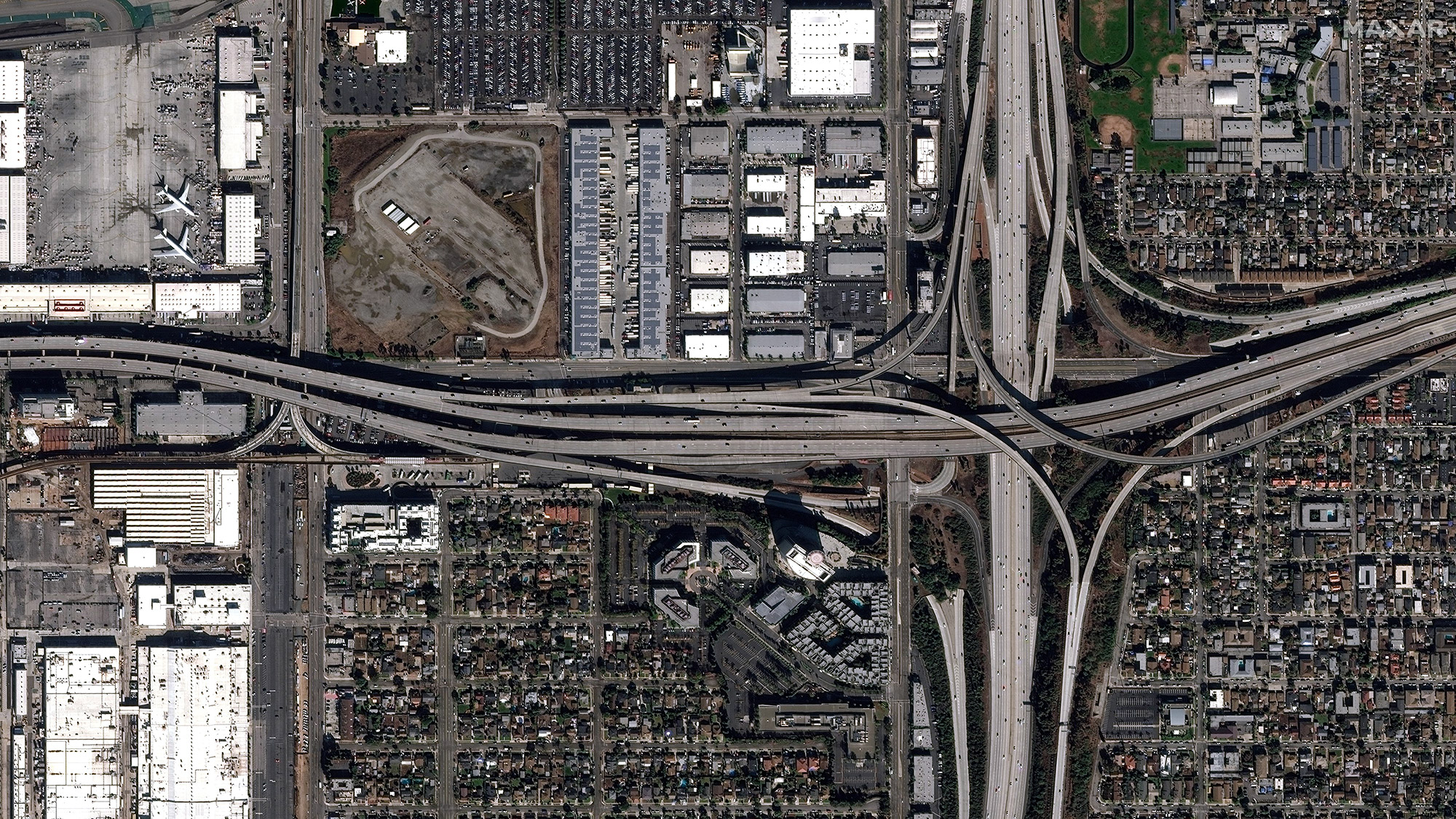
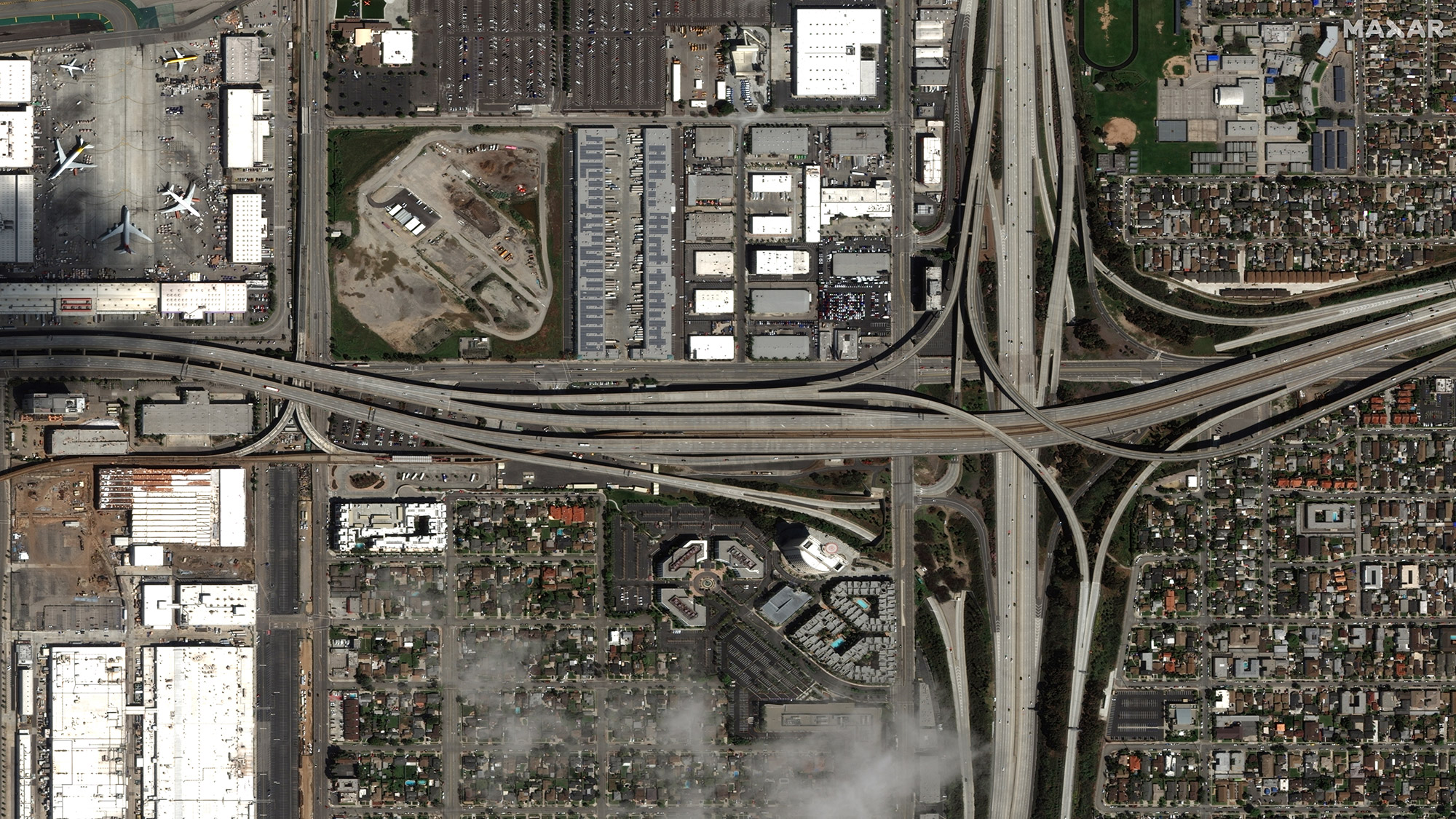
While these images from space show how crowds and traffic have seemingly vanished from the face of the Earth, they also reveal several new structures popping up around the world: makeshift hospitals that are being built to deal with the influx of critically ill patients.
Maxar's images show two "pop up" medical facilities that were built in Wuhan, China, where the novel coronavirus originated. The satellites also captured views of a coronavirus testing facility in Germany and a soccer stadium in Sao Paolo, Brazil, that is being converted into a hospital.

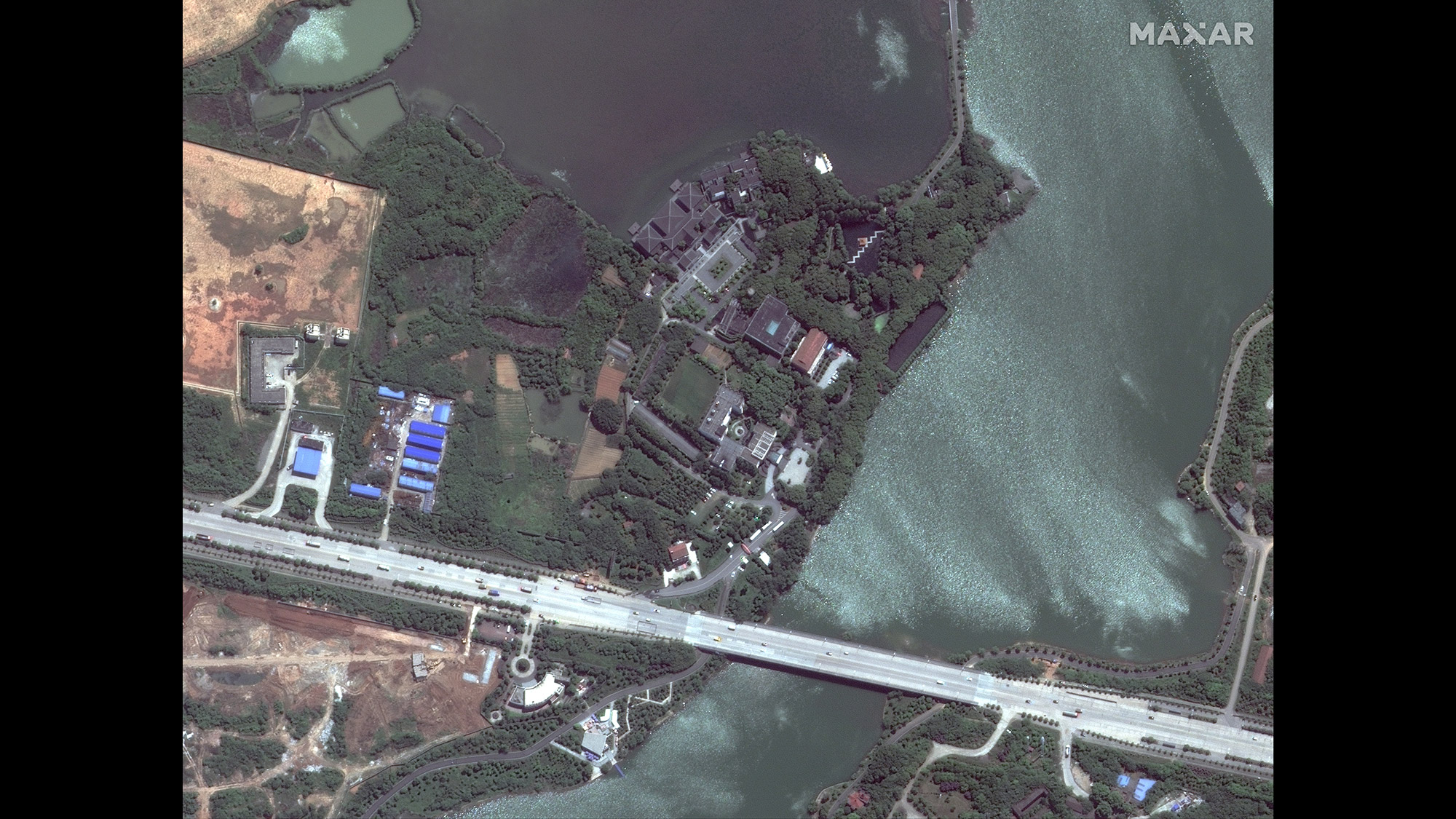
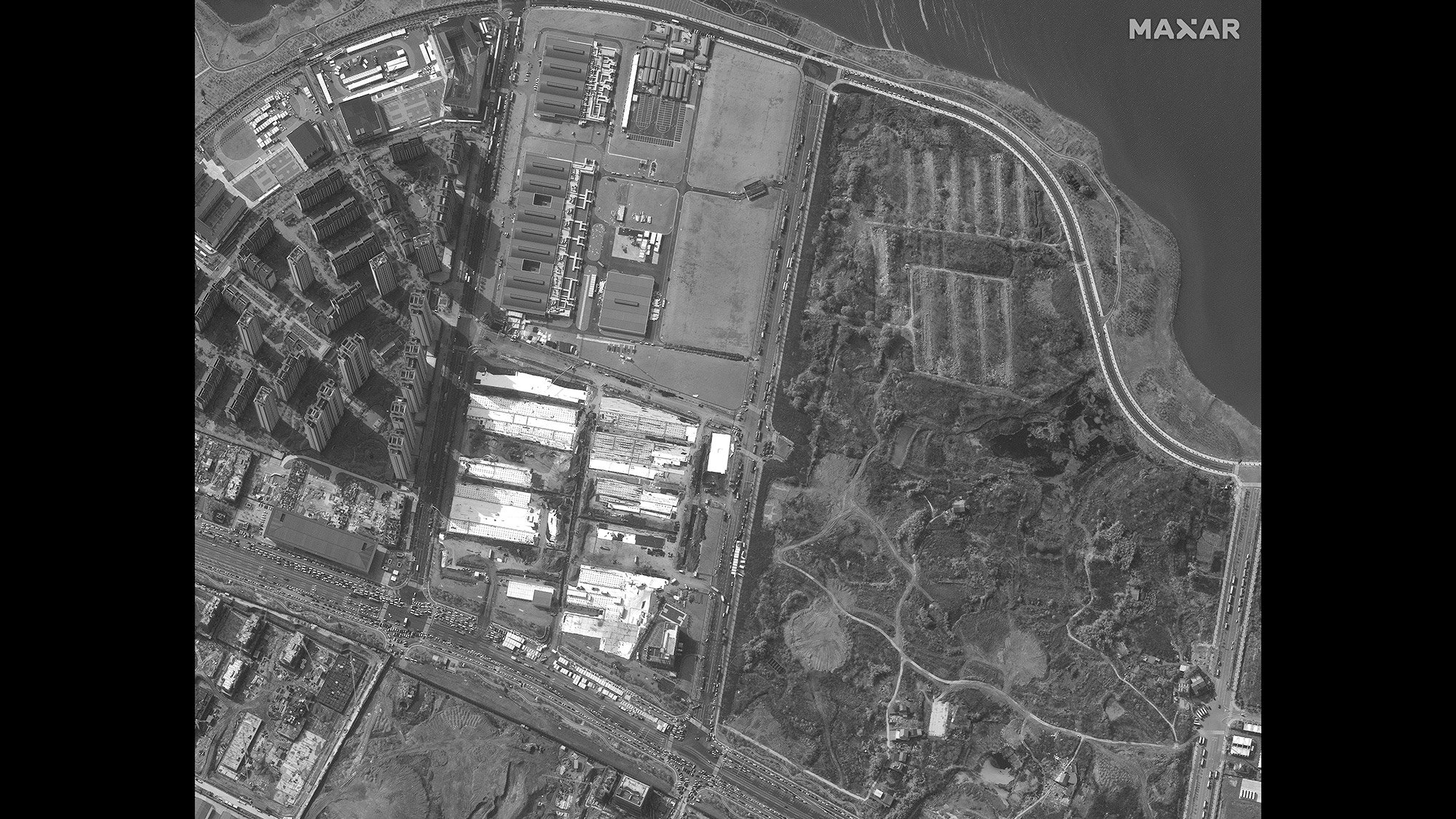
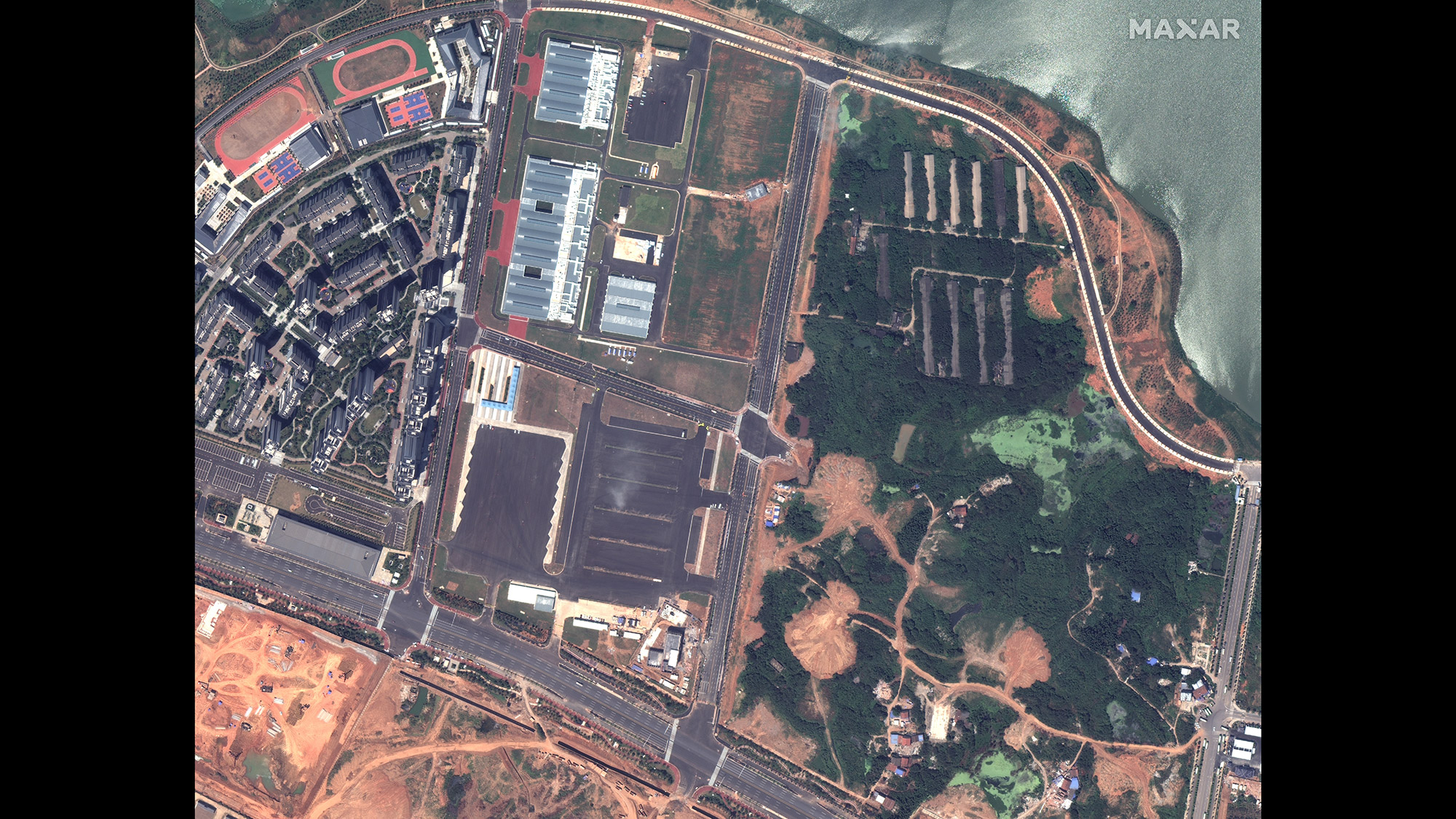
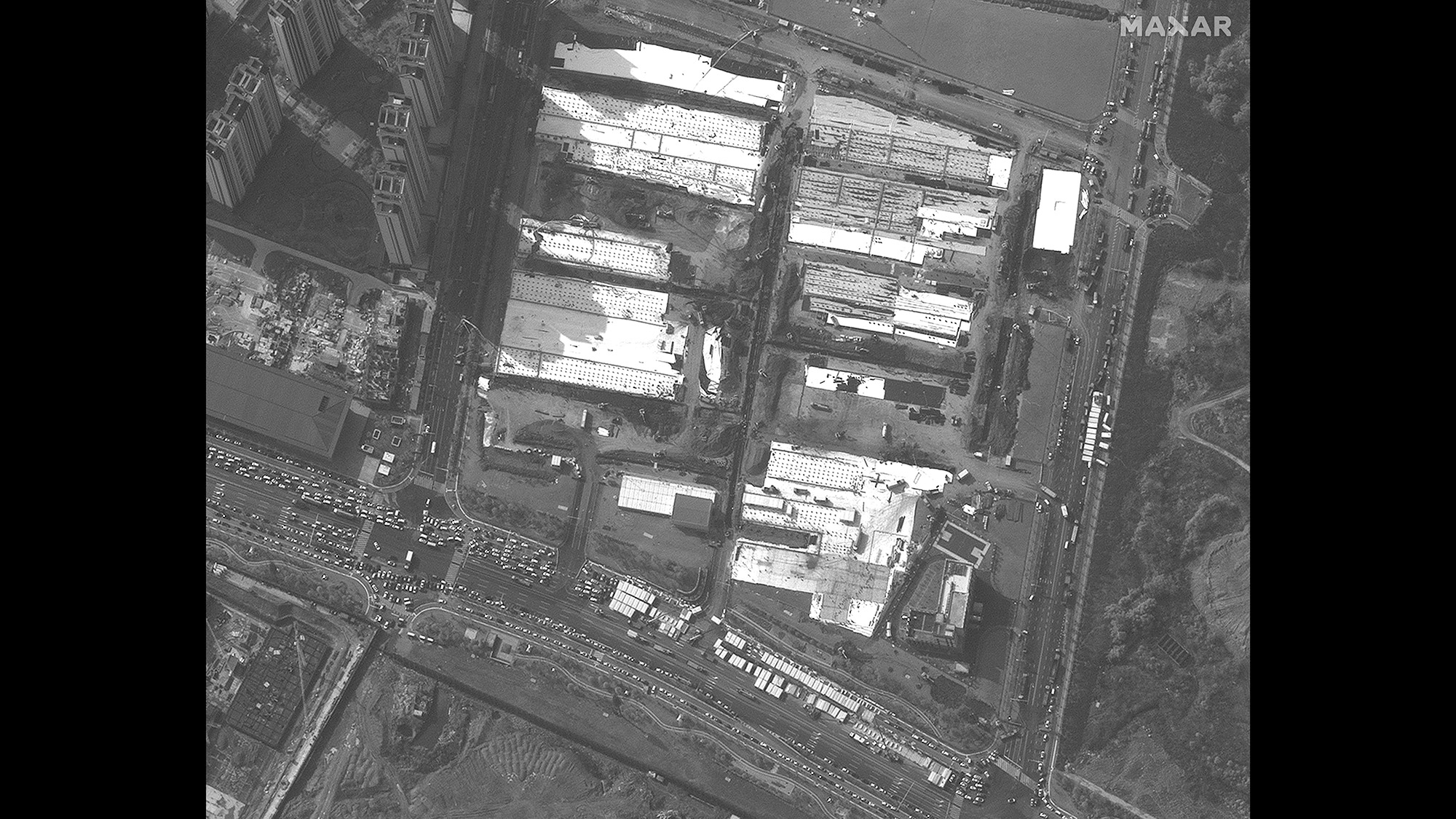
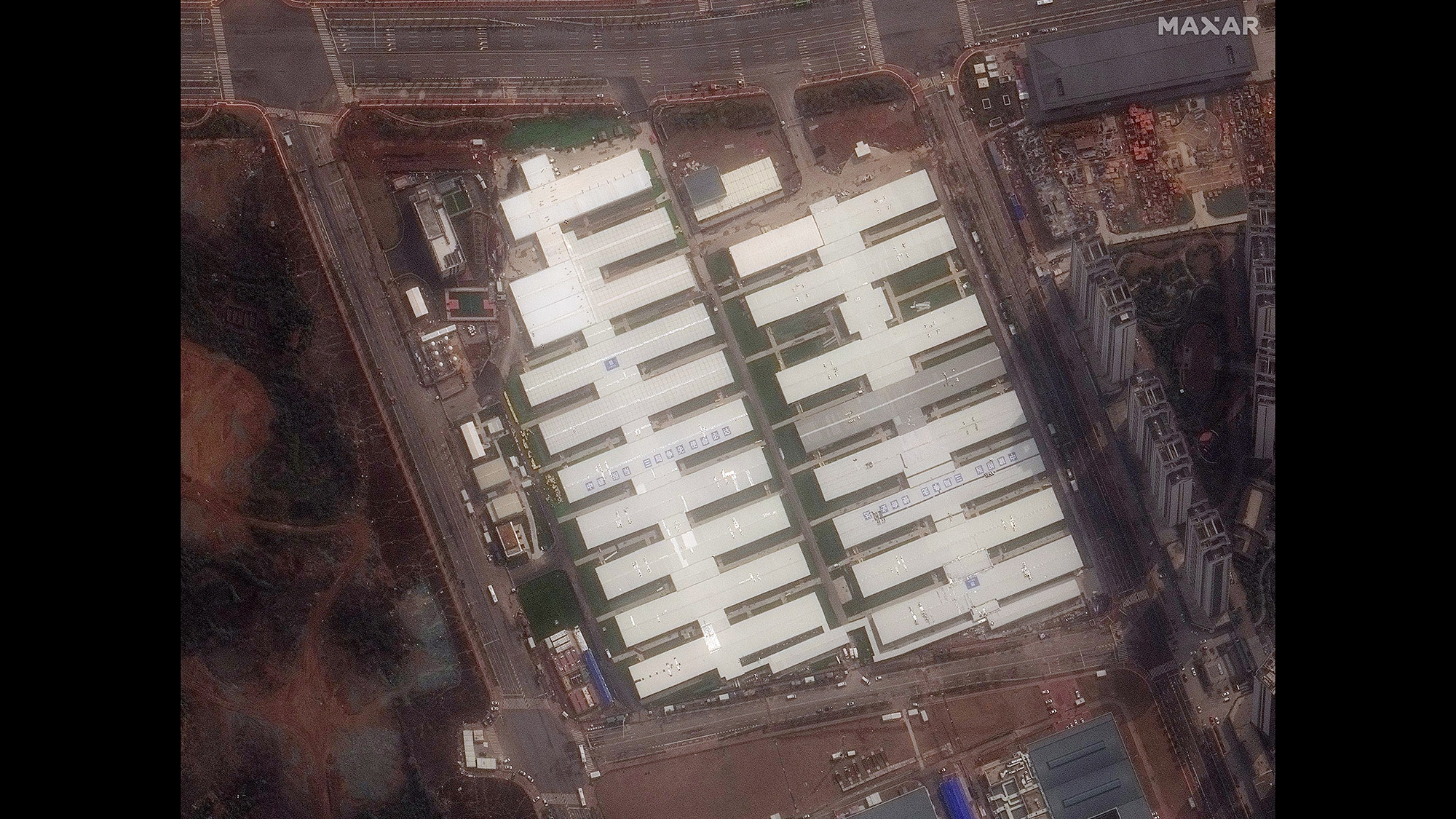
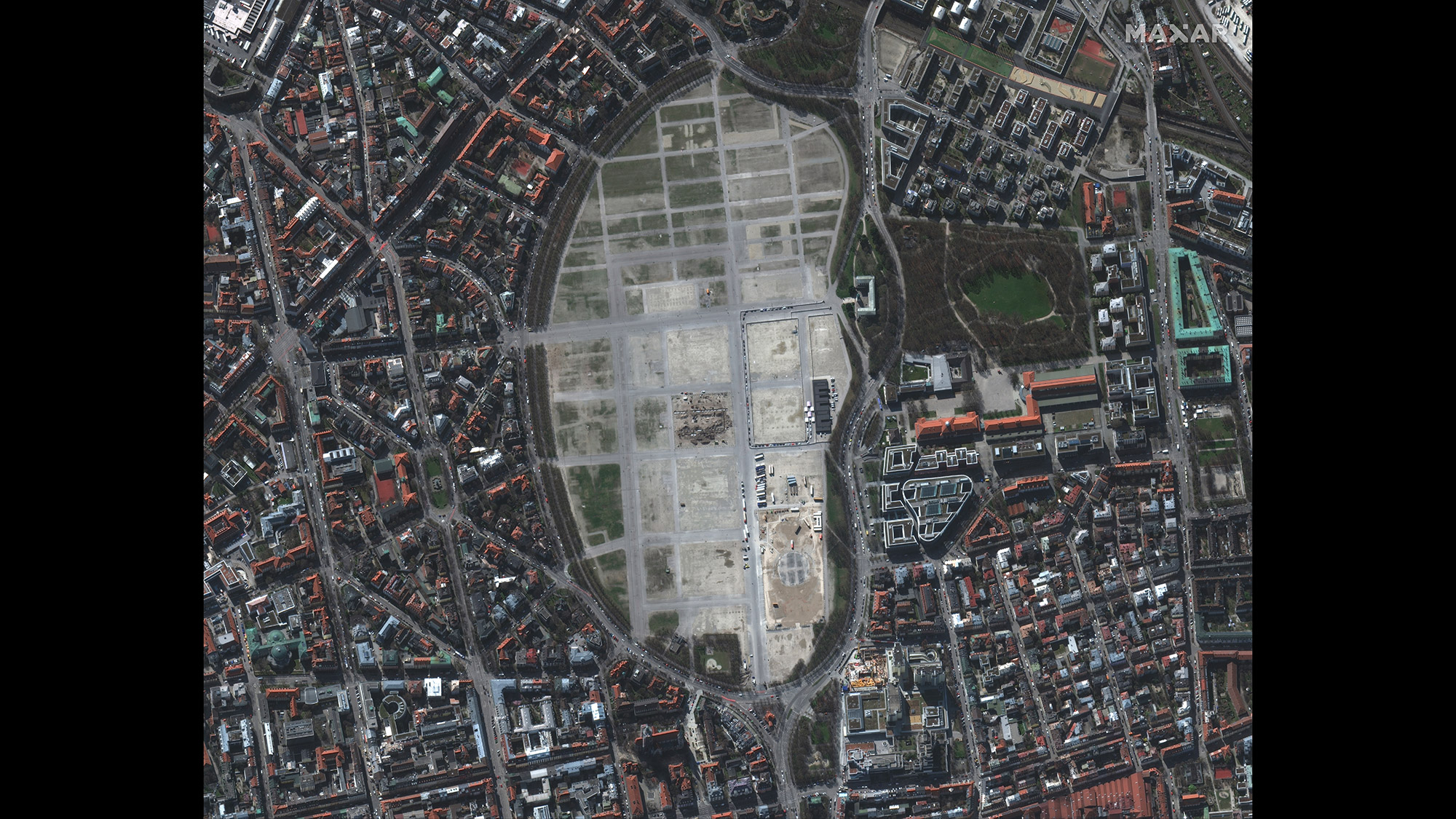
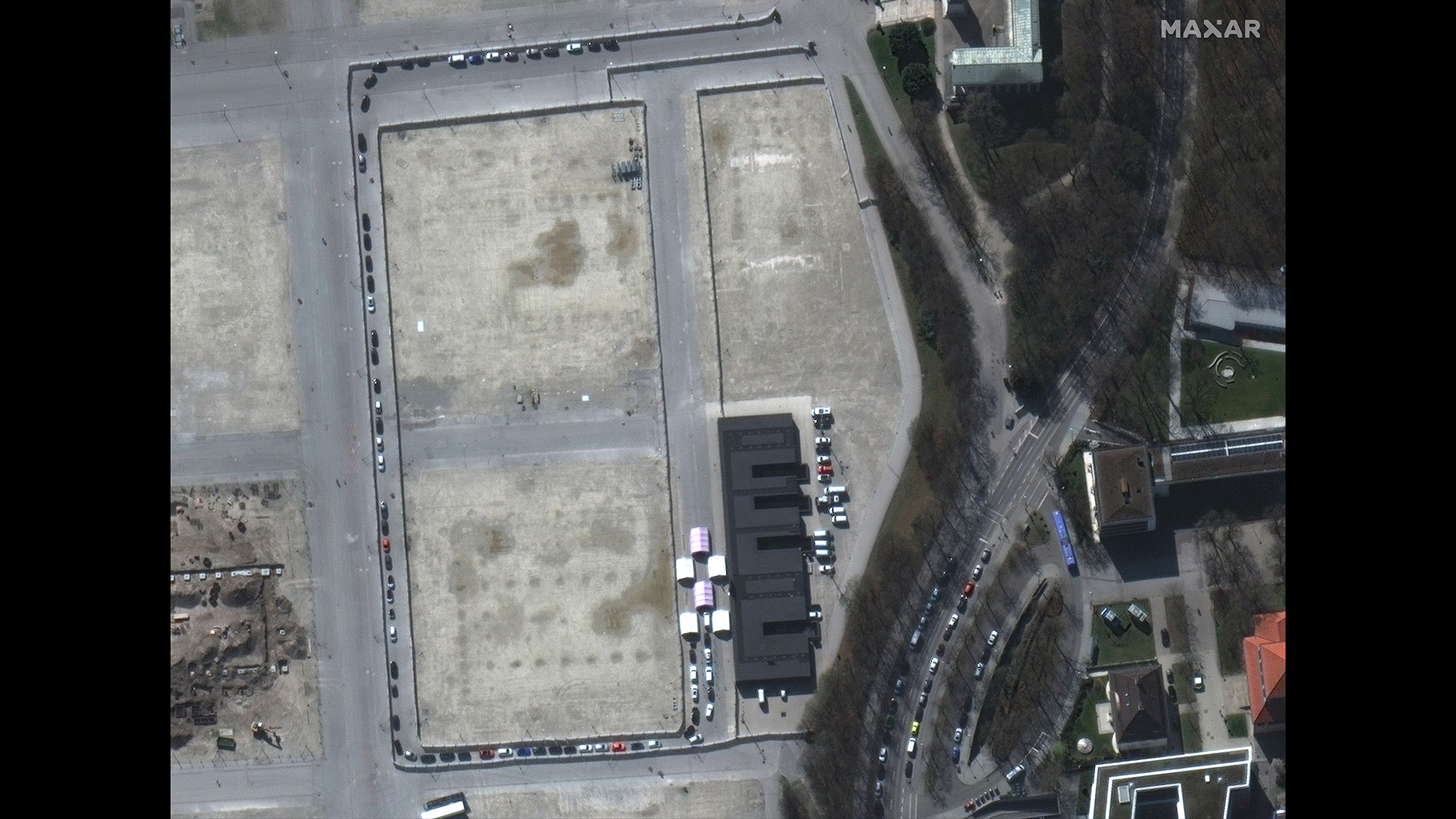
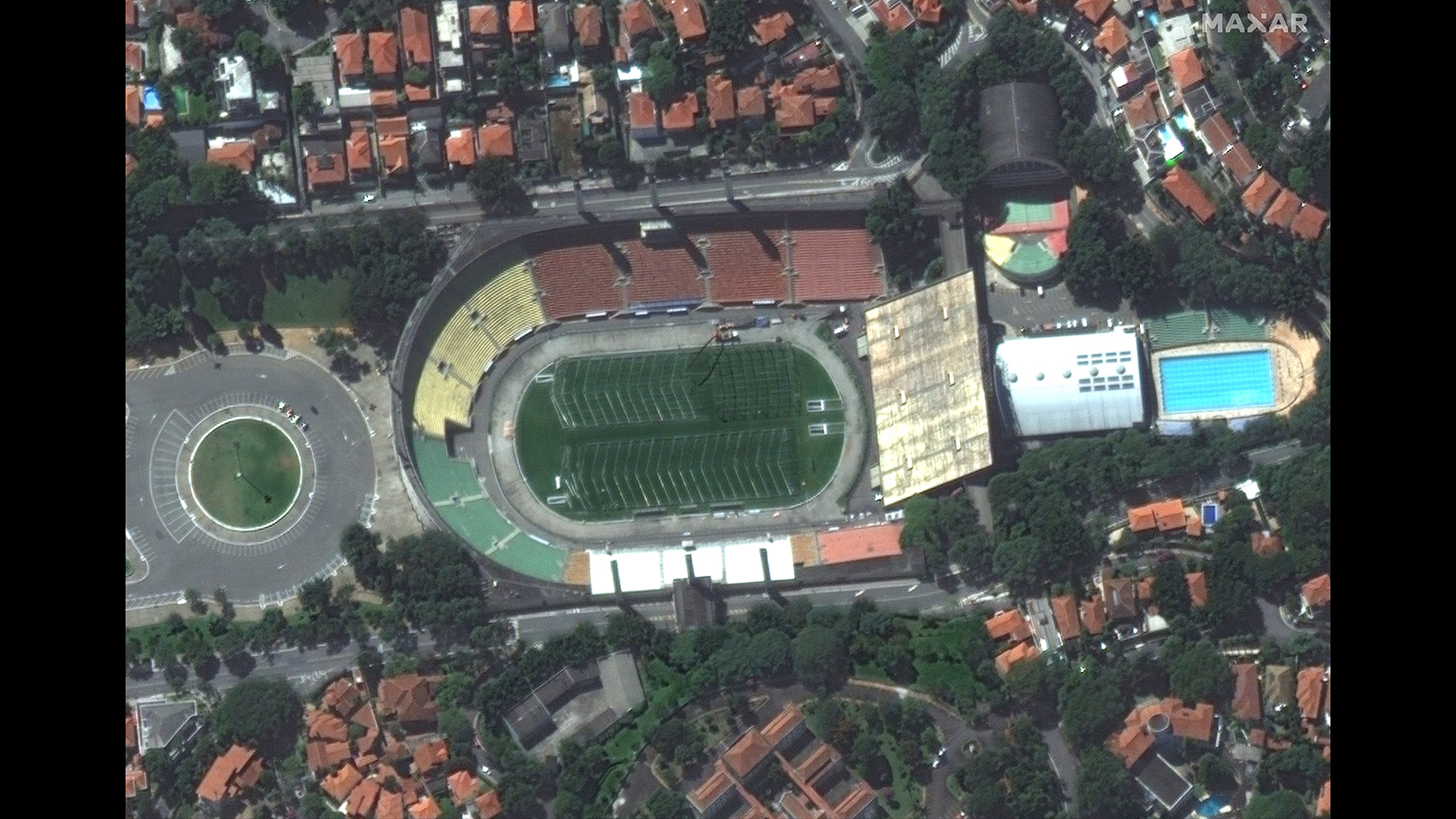
"Maxar is scanning our recent satellite imagery for the construction of medical facilities in response to the coronavirus. These seem to be popping up slowly at hospitals, in/around sports facilities and other places," Maxar officials said in a statement. "We expect to find more of these facilities being creating in the coming days/weeks."
Get the Space.com Newsletter
Breaking space news, the latest updates on rocket launches, skywatching events and more!
- Satellite images show Iran's mass graves for coronavirus victims
- Elon Musk offers to make ventilators for coronavirus patients
- Coronavirus pandemic: Full space industry coverage
Email Hanneke Weitering at hweitering@space.com or follow her @hannekescience. Follow us on Twitter @Spacedotcom and on Facebook.
OFFER: Save at least 56% with our latest magazine deal!
All About Space magazine takes you on an awe-inspiring journey through our solar system and beyond, from the amazing technology and spacecraft that enables humanity to venture into orbit, to the complexities of space science.
Join our Space Forums to keep talking space on the latest missions, night sky and more! And if you have a news tip, correction or comment, let us know at: community@space.com.

Hanneke Weitering is a multimedia journalist in the Pacific Northwest reporting on the future of aviation at FutureFlight.aero and Aviation International News and was previously the Editor for Spaceflight and Astronomy news here at Space.com. As an editor with over 10 years of experience in science journalism she has previously written for Scholastic Classroom Magazines, MedPage Today and The Joint Institute for Computational Sciences at Oak Ridge National Laboratory. After studying physics at the University of Tennessee in her hometown of Knoxville, she earned her graduate degree in Science, Health and Environmental Reporting (SHERP) from New York University. Hanneke joined the Space.com team in 2016 as a staff writer and producer, covering topics including spaceflight and astronomy. She currently lives in Seattle, home of the Space Needle, with her cat and two snakes. In her spare time, Hanneke enjoys exploring the Rocky Mountains, basking in nature and looking for dark skies to gaze at the cosmos.
-
eagle6117 I'm interested to see what effects the sudden drop in pollution will do to the ecosystem. You have to figure you'll see a bumper crop of insects or something like that. : )Reply










